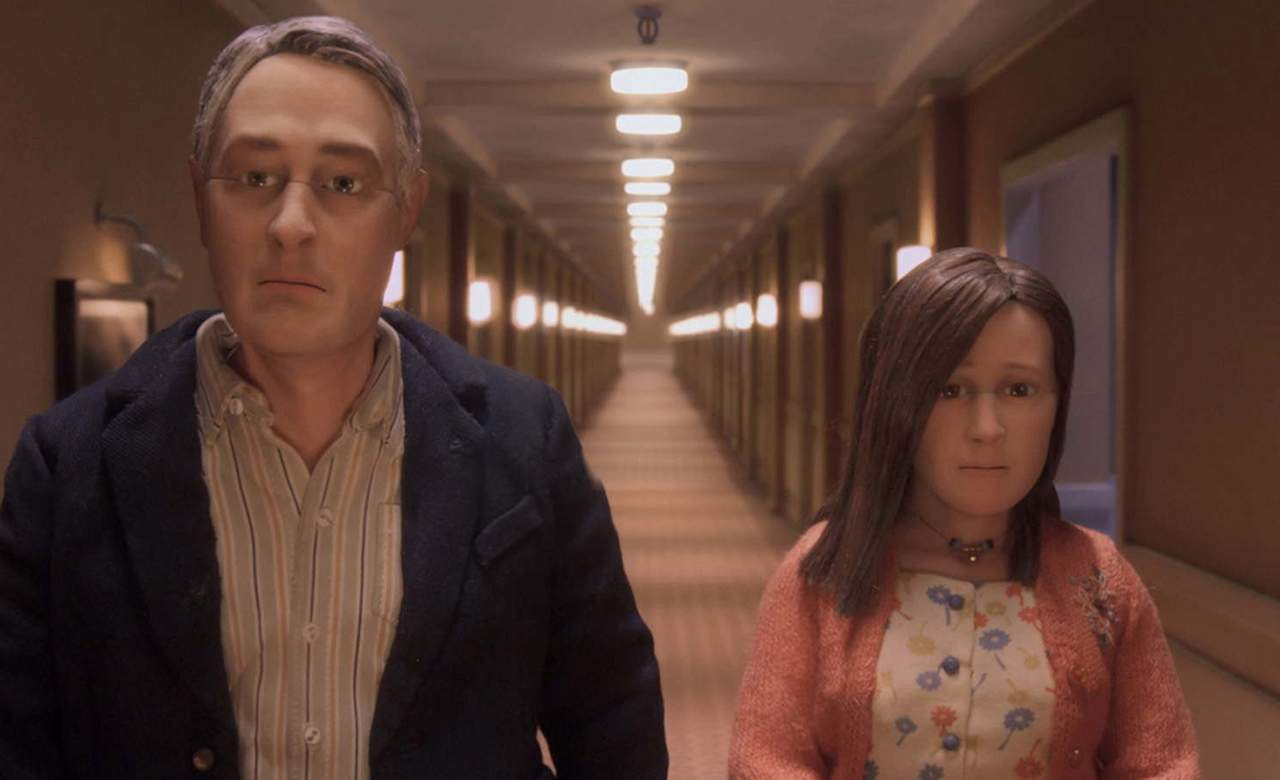Anomalisa
A perceptive, precisely paced animated feature from the mind of Charlie Kaufman.
Overview
Do we really need another movie about male mid-life malaise? The answer, obviously, is no. Still, don't discount the partially crowd-funded Anomalisa on account of its seemingly familiar storyline. Springing from the mind of Being John Malkovich, Adaptation and Eternal Sunshine of the Spotless Mind writer Charlie Kaufman, who also co-directs with stop-motion specialist Duke Johnson, this animated effort is far from commonplace.
Kaufman's latest sad-sack protagonist is author Michael Stone (voiced by David Thewlis). In Cincinnati overnight to speak about his latest book at a customer service convention, he's lonely and restless, not even raising a smile when he calls home to talk to his wife and young son. Instead, he meets up with an ex-girlfriend, an interaction that unsurprisingly ends badly. Everyone he encounters seems the same, until he comes across visiting call centre worker Lisa (voiced by Jennifer Jason Leigh). She looks and sounds different to everyone else. In a sea of blandness, she stands out. As they spend an evening together, Michael realises why: Lisa is an anomaly.
Yes, there's some titular trickery at work, though there's much more than that to this perceptive, precisely paced feature. Stylised touches of the classic Kaufman kind — everyone other than Michael and Lisa is stripped of their individuality because they're all voiced by actor Tom Noonan, for example — amplify an atmosphere that's both mundane and surreal. However, what shines brightest is Anomalisa's haunting understanding of the frailties and anxieties that linger inside all of us, whether we're following our usual routines, falling in love when we're not supposed to, witnessing romantic bliss turn sour, or simply stewing over our unhappy place in the world.
There's something about animation that, in the right hands, can get to the heart of such existential, universal angst — and that's not just one of Kaufman's specific skills, as the astute and affecting works of Don Hertzfeldt also show. Perhaps it's a product of forcing viewers to emphasise with figures rather than actors. Perhaps it's the act of focusing on emotions over appearances. Perhaps it's the ability to splash even the strangest thoughts and feelings across the screen. Perhaps it's all of the above.
Certainly, the vocal work of the mournful Thewlis, radiant Leigh and versatile Noonan deserves ample credit in Anomalisa's case, particularly given its dialogue-heavy nature (a remnant of the material's origins as a play that wasn't initially intended to make the leap to cinema). One of the movie's main pleasures stems from listening to Thewlis and Leigh talk, whether Michael and Lisa are sharing stories about their lives or awkwardly engaging in puppet sex. In fact, their fluid tones help achieve Kaufman's ultimate aim: making the audience forget they're not actually watching real people. There's nothing strained or tiring, or remotely ordinary, about that.







